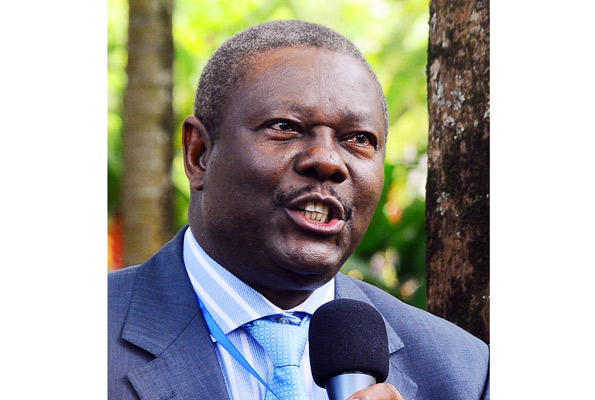To those who view local participation, and by this we mean the share of contracts going to indigenously owned companies, as a pipe dream, if one could be forgiven for the pun, the last 2-years would appear to validate their fears.
As Uganda marks a historic commencement to commercialization by drilling its first wells for oil extraction at the Kingfisher concession, the oil sector cannot afford to bury under promising but mostly unrealized official policy that local participation, sometimes referred to as local content will sort itself out.
It will not.
There are three problems to address here. They are the lack of sufficient capital to support the participation of local firms, the lack of capacity domestically for an industry operating on extremely high standards of safety, consistency and performance and the inability (and unwillingness) of Ugandan companies to pool their resources and work together to address the previous two shortcomings.
All three are present and collectively explain perhaps why after nearly US$ 7 billion dollars of contracts have been approved, most in the last two years, only a handful of Ugandan firms are in consortia (joint ventures) and the total take of local companies in the official figures is approximately US$ 1.2 billion. The pattern is set to repeat itself. The oil sector as a going concern shall not wait for Ugandan firms to upgrade or pull up their socks.
Any areas no matter minute – such as supplying approved stationary by industry standards, or the right cut of meat or pork will be carried by a foreign firm where no domestic option exists. This is the reality. “The oil sector shall move forward regardless” a senior official who has been around since the days when a few geologists prowled the Albertine doing rudimentary tests told me. Seen from the perspective of government policy, the argument will be made, not less by the President when he commissions the well drilling milestone today that all investments made in the sector ultimately benefit Ugandans not least through taxes, the improved infrastructure especially in the oil producing regions, the transfer of skills and technology to some degree and the creation of jobs – many jobs during this construction phase.

Moreover, the local content architecture, whether or not Ugandans have taken advantage of it, is one of the most generous of its kind in the world. In an ideal setting Ugandans would be far more integrated into this sector based on its design. It is by law, and it bears repeating that sixteen categories of goods and services are reserved for Ugandan entities. To list them here they include the provision of security, foods and beverages, hotel accommodation and catering, human resource management, office supplies, supply of fuel, land surveying, clearing, and forwarding, crane hire, supply of (locally available) construction materials, civic works, environment studies and impact assessments, communications and information technology services and waste management where possible.
In practice even these ring fenced areas for Ugandan firms are falling under the sword of lack of finance ( this is not just about the availability of money but the conditions under which it can be lent- many Ugandan firms have not accumulated the trustworthy metrics that Banks, both local and foreign need or the responsible management of assets that constitute primary security), the capacity to deliver ( rigor in the delivery of extremely high standards safely and consistently) and the entrepreneurship needed where the two preceding are lacking to engage in joint ventures that leverage their legal advantage under local content legislation. So, what I have observed is that the main contracting entities are beginning to look away as these areas are filled, by necessity, by foreign firms taking on Ugandan legal identities. Industry insiders can point to this in fact as the main experience today of sub-contracting in many sectors.
In one particularly annoying case, one of the few joint ventures, held out as a model involving the provision of emergency medical services was in trouble because even where Ugandan medics (doctors) were written in as the main caregivers, the foreign firm insisted expatriates understood this to mean foreign doctors. Perhaps it was a trust issue that the Ugandan joint venture partner was only considered capable of administrative tasks but even as vexing as this individual case is, Ugandan firms must do the work and advance beyond entitlement and address the issues in detail. Local specialist medical care out here has a reputation in any case that is not great, malpractices abound, the Uganda Medical Association rarely sanctions doctors for even the most egregious breaches of their oath and many Ugandans who can afford good care travel abroad. This is the stock from which even racist prejudices thrive in the atmosphere of the polite talk about lack of capacity in this and other sectors.

Above ( Mr. Kabagambe Kaliisa fmr PS at the Ministry of Energy)
That said the support for Joint Ventures underlies the logic of local participation. The integration of Ugandan businesses is not just to put money in the pockets of locals. This is how oil sectors elsewhere in Africa have failed. They fail because a narrow foreign dominated cluster of companies isolated in a sector sequestered from the rest of the economy generates the money – and distribution is left to the politics of the country. They fail because distribution (the sharing of money or the national cake) does not equal development.
By contrast Uganda’s oil sector is designed to retain value on multiple fronts, the main pillars of which are evolution of local human capital, investment in value addition to locally produced goods and services, enterprise development and capacity buildings – and then employment. If it works well, the oil sector can then lift the quality of the economy not simply by increasing the amount of money spent at home (the US$ 15 billion, arguably the biggest investment in our history).
In fact, we should stop citing this figure because it can be distracting. In real terms every dollar spent in the economy shall multiply by a factor of ten depending on how it is comingled into the economy. I know of several businesses that are essentially bigger outside the oil sector because of the nature of contracts they have had to execute within the sector. I have also been watching for example an expression of interest put out by Total Energies for the provision of Specialist Chemicals for the sector. The contract value for this alone is about US$ 156 million. While few chemical companies in Uganda have the expertise beyond some agricultural chemical companies like Bukoola Chemicals – the capacity to procure, prepare, blend and store and transport chemicals and generally manage quality at this level is much more relevant to Uganda’s other strategic sector – minerals.

According to a study by the Uganda Investment Authority (Mining and Beneficiation Situational Analysis 21/23), the mining sector’s value in dollar terms shall eventually exceed the oil and gas sector. Moreover, with value addition, the sector shall provide the materials and tools the economy needs to solve problems in construction, industry and agriculture including fertilizer and pesticides. Thus, a contract for the provision of specialist chemicals in the oil and gas sector cannot be seen narrowly as simply a question of the practical needs of the oil companies but rather constituting a strategic opportunity to retain a vital capacity for use – in this case in the mining sector which shall require even more complex and diverse chemical blending.
Seen this way, such contracts must attract the attention of oil sector managers as they represent the real meaning of local content – the integration of the oil and gas sector into the future of the Ugandan economy as it evolves. In so doing we should do the work needed to satisfy the needs of the oil companies on the terms the sector sets while building into their value chains the partnerships that will sustain their contribution to the Ugandan economy into the long run.
It will not be easy, but we move, nonetheless.











Impressive content. I shall subscribe for more.
The best local content Ugandans can have is land. If all this land around the project areas are titled , how much value will Ugandans retain. All these foreign entitles coming in need land for setup, and if people are advised and helped on land and deal structuring, then value will be realised and retained.